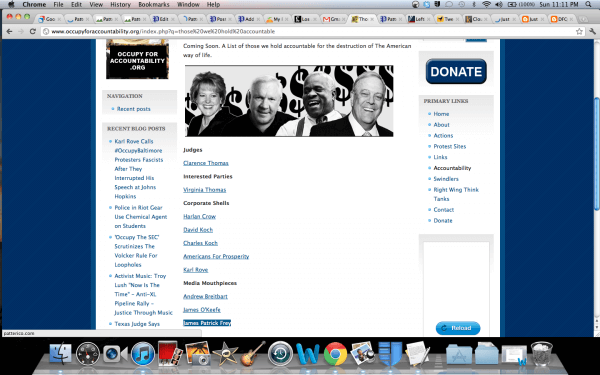Purveyor of Corporate Expression Calls for Limits on Corporate Expression (Update: Ashford Takes Me Out of Context)
[Guest post by Aaron Worthing. Follow me by Twitter @AaronWorthing.]
Update: Btw, over at Seventh Sense, Ken Ashford is taking me out of context. Given that I had already corrected a commenter here for taking me out of context in the exact same way, I can safely say that Ashford’s deception is deliberate.
From the first days after the Supreme Court’s ruling in Citizens United came down there has been a certain irony in many of the denunciations of that decision. As you recall, that decision involved a film called Hillary: The Movie, a documentary that by all descriptions came off as a long infomercial against choosing the Secretary of State to be in any higher office greater than dog catcher. Even though it was obviously political expression—indeed precisely because it was political expression—the FEC said that Citizens United could not air ads promoting its movie for pretty much the entire primary season. Citizens United challenged this holding all the way to the Supreme Court which resulted in the Court striking down virtually all limits on corporate expression in an election.
So right from the beginning there was a certain irony among certain voices who denounced the decision, which I think I captured well in this old passage from my old blog (language warning at the link):
On January 23, the New York Times denounced the Supreme Court’s ruling in Citizens United v. F.E.C., stating that “the court[] … has paved the way for corporations to use their vast treasuries to overwhelm elections and intimidate elected officials.” In a twist worthy of Monty Python and the Life of Brian, this editorial was unsigned, representing the voice of the New York Times Co., itself a corporation. It amounted to “this corporation says that no corporation has a right to free expression.”
Next I suppose the entire staff will gather together and chant, in unison, “we are all individuals.”
The irony is less rich, then, that we get version 10.0 of these critiques from Scott Turow. He has indeed not only profited from corporate expression, being the author of books ranging from One-L, a nonfiction book detailing life at Harvard Law School in the 1970’s (think The Paper Chase without the silly romance and much more about the nuts and bolts of law school), to his breakout hit Presumed Innocent. Each of these books, including his latest, have been published by—gasp!—corporations or similar structures, and yet he sees corporate expression as an anathema to the republic that should be rallying cry of the Occupy movement:



